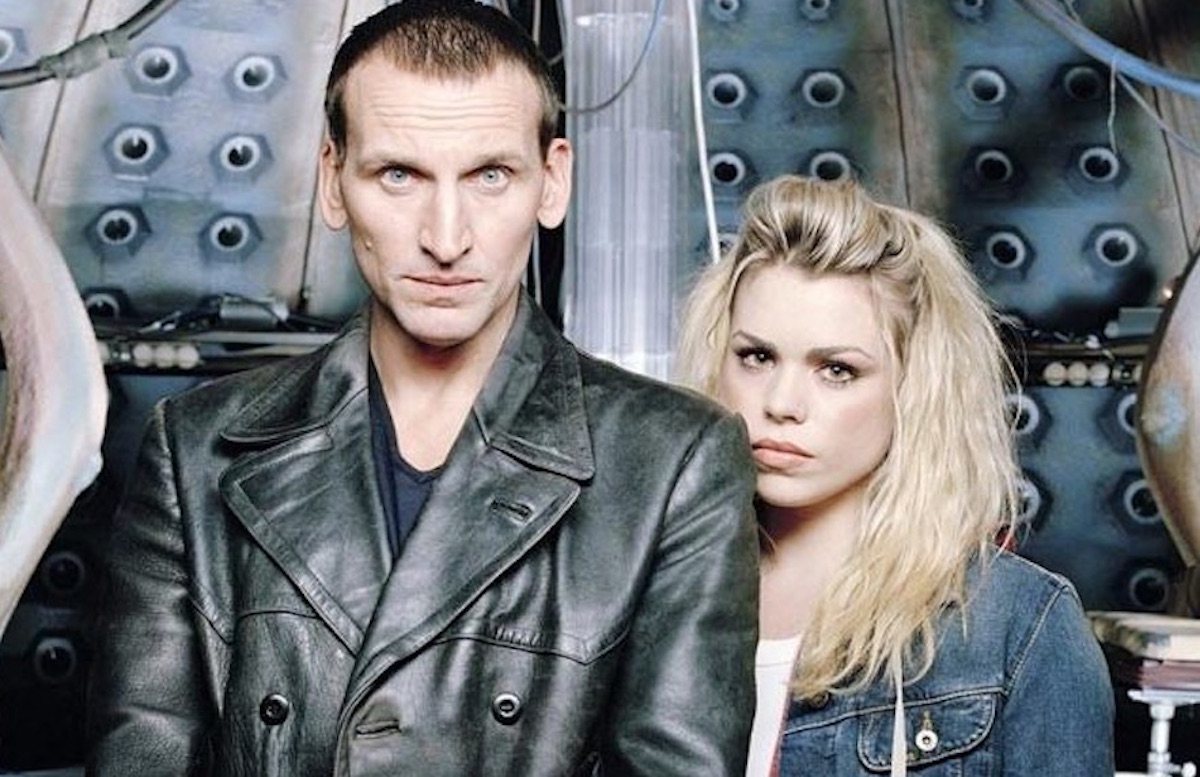Doctor Who Star Christopher Eccleston Bravely Reveals Battles With Anorexia, Depression

Christopher Eccleston, who starred on Doctor Who as the Ninth Doctor—my favorite—has written an autobiography, wherein the actor shares some extremely personal disclosures. In the book, I Love the Bones of You, Eccleston touches upon his struggles with eating disorders, anxiety, and depression.
Eccleston has never been one to shy away from making frank statements. He’s previously discussed his frustrations with feeling “blacklisted” by “the BBC regime” after he left Doctor Who, even though his turn as the Ninth Doctor revived the show for the modern era and made the series a huge hit. With his autobiography, the revelations are on an even more personal level. As The Guardian reports of Eccleston’s new work:
“Many times I’ve wanted to reveal that I’m a lifelong anorexic and dysmorphic,” [Eccleston] wrote in I Love the Bones of You. “I never have. I always thought of it as a filthy secret, because I’m northern, because I’m male and because I’m working class.”
The 55-year-old said he had been ill with the eating disorder during the filming of Doctor Who. “The illness is still there raging within me as the Doctor,” he wrote.
“People love the way I look in that series, but I was very ill. The reward for that illness was the part. And therein lies the perpetuation of the whole sorry situation.”
The actor also writes about anxiety, depression and the suicidal thoughts he faced following his separation from his wife in 2015. He says that he sought help from a psychiatric hospital at a moment of crisis and is currently taking antidepressants. It’s incredibly important and valuable whenever someone in the limelight is willing to speak honestly about their experiences with mental health, and Eccleston’s forthrightness here could motivate and encourage others.
But it is Eccleston’s reveal about struggling with anorexia and body dysmorphia that is making headlines and receiving attention on social media at the moment, because it is so rare to see a famous man do so. As Eccleston notes, he felt that being “Northern” and “male” and “working class” combined to create further stigma in disclosing that he was suffering.
Many men find themselves trapped in a toxic cycle of struggling with afflictions that are more broadly associated with women, battling a sort of insidious societal expectation that they’re not “supposed to” experience the same. This can make it even less likely that they will look for treatment, and some systems of assessment and recovery are not designed with men in mind. As the National Eating Disorders Association writes, “Despite the stereotype that eating disorders only occur in women, about one in three people struggling with an eating disorder is male … But due in large part to cultural bias, they are much less likely to seek treatment for their eating disorder. The good news is that once a man finds help, they show similar responses to treatment as women.”
Voices like Eccleston’s are utterly vital in bringing issues like this to international attention, and in letting people of every age and gender identity know that they are not alone. Reactions on Twitter have echoed this theme:
Christopher Eccleston coming forward to tell his story about having anorexia during his time on Doctor Who is something we should all be talking about and listening to. I am so moved by his bravery and completely shocked that he has been suffering all this time.
— beth (@0hMySt4rs) September 16, 2019
I ❤️ Christopher Eccleston and my thoughts go out to him for opening up about this difficult subject. Male anorexia is so deeply stigmatised and I imagine so many men appreciate his decision https://t.co/XsWgbDRDdi
— 🌻🌻🌻 (@extrmlychaotic) September 17, 2019
“Christopher Eccleston has long been a hero of mine, but him coming forward about his battles with anorexia has made him even more so. From one survivor to another: thank you,” wrote another user on Twitter. Christopher Eccleston has also long been one of my favorite actors, and he’s demonstrating that it’s the actions taken in real life that can make more of a difference than anything we see onscreen.
(via The Guardian, image: BBC, I Love the Bones of You on Amazon)
Beat Eating Disorders Helpline UK
Helpline: 0808 801 0677
Studentline: 0808 801 0811
Youthline: 0808 801 0711
National Centre for Eating Disorders Helpline: 0845 838 2040
Samaritans is a registered charity aimed at providing emotional support to anyone in distress or at risk of suicide throughout the United Kingdom. They provide a 24/7, toll-free crisis line, as well as local branches. Samaritans Helpline can be reached at 116 123.
The National Eating Disorders Helpline (USA) is available Monday-Thursday from 9AM to 9PM ET, and Friday from 9AM to 5PM ET. Contact the Helpline for support, resources and treatment options for yourself or a loved one. You may reach the Helpline at (800) 931-2237.
If you feel you are in crisis, please call the National Suicide Prevention Lifeline. It is a free, 24-hour hotline, at 1-800-273-TALK (8255). Your call will be connected to the crisis center nearest to you. It is a free, 24/7 service that can provide suicidal persons or those around them with support, information and local resources.
The Trevor Project is a national 24-hour, toll-free confidential suicide hotline for LGBTQ youth. Call the TrevorLifeline. We are always here: 1-866-488-7386.
Want more stories like this? Become a subscriber and support the site!
—The Mary Sue has a strict comment policy that forbids, but is not limited to, personal insults toward anyone, hate speech, and trolling. If you purchase something through our links, The Mary Sue may earn an affiliate commission.—
Have a tip we should know? tips@themarysue.com